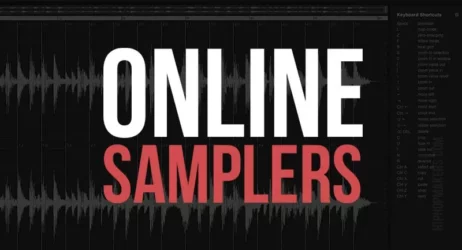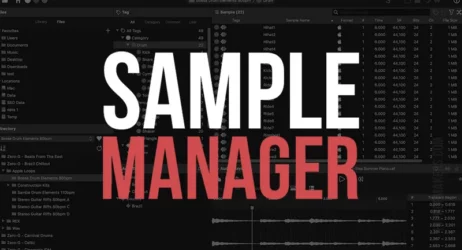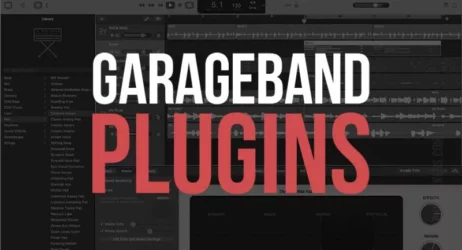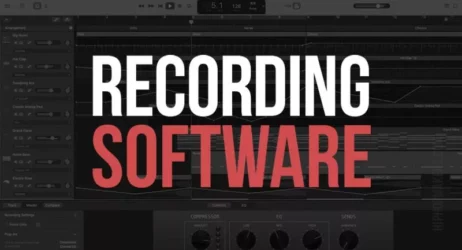This guide will answer what is a Music Publisher, what they do, what you should expect from them, and other common music publishing questions.
What Is A Music Publisher?
A music publisher is an individual or an organization that negotiates contracts for royalty rates and copyright permission on behalf of artists. This can include songwriters, composers, and artists. Music publishers negotiate deals with other companies who want to distribute the artist’s music.
- What Is A Music Publisher
- What Does A Music Publisher Do
- What To Expect From A Music Publisher
- How Music Publishing Deals Work
- Can I Be My Own Music Publisher
- Is a Music Label a Publisher
- Publishing Deals vs. Record Deals
- How Do I Become A Music Publisher
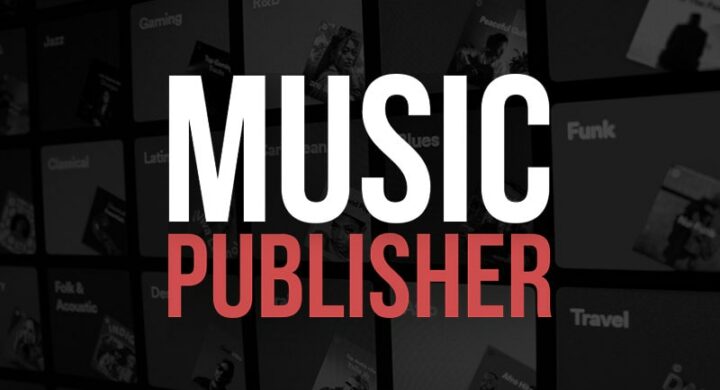
What Is A Music Publisher?
A music publisher makes certain that creators and songwriters are compensated when their work is commercially reproduced.
A publishing contract is an arrangement in which a creator or songwriter ‘delegates’ the copyright of their work to a music publisher. In exchange, the music publisher assists in identifying licensees, advertises to musical artists and film and television companies, and then licenses the songs or compositions, collects revenue, and transfers them to the writer or composer. They also handle the artists’ ownership and copyright authorization.
The music publisher earns a portion of the royalties for this piece. There are many types of publishing royalties; therefore, the amount derived from the royalties is highly dependent on the type of contract and the said royalty.
When a songwriter delegates work to a music publisher, the publisher might assist the author in a variety of ways.
One of the publisher’s key responsibilities is to safely secure and patent commercially available records, CDs, and recordings of the music being released.
The publishing house must have a powerful team of qualified senior executives who know what artists are recording and the type of material required for a specific session and have decent interpersonal relationships with A&R executives, recording artists & companies, producers, and other employees of the clients.
Following the first recording and publication of a song, the publisher will attempt to get agreements from other songwriters or music producers to feature the composition in forthcoming volumes. A music publisher also provides effective administration of musical pieces.
It goes as far as filing important information and documents with appropriate organizations, auditing music companies, and registering copyrights and patents. Music published also assists companies in bookkeeping, collecting receivables, and negotiating licenses.
The publisher has a crucial obligation to preserve the copyrights of an album or single and enforce the exclusive rights assigned to it by the composer and intellectual property laws. Given the number of real and prospective users of songs worldwide, a reputable publisher will invest a massive amount of time and money to ensure that their music is not used without authorization and pay.
Today, many music publishers have taken on the particular challenge of arranging audio contracts for their authors. In many circumstances, the publisher is in charge of generating the completed recording.
Related: 11 Best Music Streaming Royalty Calculators
What Does A Music Publisher Do?
Music publishing is related to the ventures of monetizing, licensing, administering, and promoting musical compositions. Essentially, it’s a music publisher’s job to effectively carry out all of these tasks.
Music publishers, through their services, ensure that music artists, composers, and creators receive their fair share of compensation and mechanical royalties once the piece of music has been released.
Moreover, music publishers also strive to generate greater opportunities for a piece of music to make its way into the spotlight by being reproduced and performed time and time again.
One of the most vital roles that a music publisher plays in the journey of a song, from journal to on-stage, is securing commercially released recordings. This includes licensing and patenting the commercially released piece of rhythmic art.
Related: What Is Music Licensing
What Should I Expect From A Music Publisher?
To protect your musical art piece from being exploited, you need a music publisher to license it and guide you in your next course of action.
You can expect the following from your music publisher.
- The music publisher should offer you fair deal terms for your composition. The music publisher’s money share in the release should be justified, and the contract period shouldn’t be too long.
- The music publisher should have an efficacious revenue collection network.
- The music producer should have a portfolio of successful projects to flaunt.
Music publishing allows you to license your songs or background music and earn compensation for writing them. A competent publisher will have a community of music supervisors, music licensing libraries, and other entities that may be interested in using your music.
Your publisher will market you and your music for usage in television, movies, advertising, and a variety of other ventures.
Music publishers should strive to connect you with other musical artists who may want to use your tracks on their CDs. If you wish to get regular royalty payments, you may need to hire a publisher to manage your material’s mechanical, synchronization, and master rights.
How Does A Music Publishing Deal Work?
Usually, once you’ve put your signature on a music publisher’s publishing deal, the publisher makes an upfront advance deposit. This is to reserve the rights to own the copyrights and licenses for any of your compositions during the contract period.
Once the process is in full swing, the music publisher takes the whole amount of royalties that flow after releasing your composition until they’ve recovered the advance payment they paid you in the beginning. Once they’ve replenished their reserves, a royalty-sharing split is decided. It may be 50-50, 60-40, or even 80-20; it all depends on the contract terms.
Can I Be My Own Music Publisher?
Yes, you can be your own music publisher; in fact, you’ll find many self-publishing masters in the musical world. Self-publishing entails not only registering as a writer but also establishing an entity to act as your publisher.
When you self-publish your music, you own all rights, intellectual property, publisher’s credit, and songwriter’s credit. You receive all royalties and complete ownership of the musical copyright. This way, you don’t have to decide on any royalty-sharing terms with a third-party music publisher – all the royalties go into your pocket.
Is a Music Label a Publisher?
No, a music record label is much different from a music publisher. A record company is personally accountable for the copies of a song that they control. Conversely, a publisher is liable for all song copies, including covers by other artists, that may be issued in a tangible form or online media.
In rare circumstances, a record label is also a publishing firm that handles such businesses and trademarks and supervises the production, distribution, manufacture, promotion, marketing, and copyright enforcement. It does all this for sound recordings and music videos and also conducts talent discovery and artist development.
Is A Publishing Deal Better Than A Record Deal?
A record contract is a binding agreement between a recording artist or group and a record label. The artist’s role is to write songs that can be promoted and sold by the record label. In exchange, the record label supports the musicians and provides them with resources that they would not have otherwise.
In contrast, a publishing agreement is a contract between an artist and a publishing company. In exchange for promoting your work, the firm may claim it. From here, the sales can continue in various directions; however, we will cover the essentials.
If you’re a songwriter, you’d be better off with a publisher agreement. Record deals often encompass bands (which may or may not include songwriters) or performing artists. Furthermore, because of specific licenses and the benefits of performing arts rights groups (which mostly favor songwriters), publishing arrangements will be more advantageous to songwriters.
As record deals generate more income than smaller companies, they have more money to spend on promoting your record—exactly what you want. It also implies that they may be able to provide you with substantial advance payment and invest in better facilities and musical gear for touring, recording, video-making, and other prospects.
How Do I Become A Music Publisher?
To start your journey of becoming a music publisher, follow the below steps:
- Establish your eligibility for being a music publisher by having at least one official release or a broadcast. By doing this, you make sure the Performing Rights Organization (PRO) can move forward with your application.
- Think of a unique name for your publishing company – something that is appropriate and resonates with you.
- Get registered as a fully functioning business.
- Open a bank account in the name of your business.
- Select a PRO and submit your music publisher’s application. This is crucial to get affiliations once you become a music publisher.
- Register yourself with the US Mechanical Organizations. These mechanical organizations grant and receive fees on mechanical licenses for broadcasting, downloads, CDs, and other tangible music. They do not handle performance royalties.
Music publishers help musicians promote and sell their tracks. Although formal schooling is not required for this vocation, having studied a major such as finance, business, or marketing at the bachelor’s or master’s level helps considerably prepare aspiring music publishers for the professional demands of the work.
Summary Of Music Publishers
A music publisher is a company that negotiates contracts for royalty rates and copyright permission on behalf of artists. It does this by negotiating deals with other companies who want to distribute the artist’s music. This can include songwriters, composers, and music artists.
There are two types of publishers in the music industry. The first type is a company (or an individual) that owns the rights to a song or album. A second type is a person or company that licenses those rights from someone else in order to sell them on their behalf.
Music publishers have aided many artists in attaining fame by helping them get their songs on TV shows, commercials, radio, and feature films.
I hope you found this guide on music publishers helpful.


